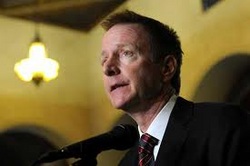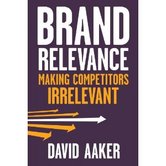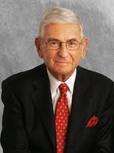|
Austin Beutner, a well-known politician and arts philanthropist, spoke to our leadership and ethics class a couple weeks ago. The talk gave me an interesting perspective on how it's possible to turn around city government organizations and be entrepreneurial in the context of public service.
Beutner started his talk with his background and family information. His dad was a mechanical engineer, and Austin was taught from a young age to be serious about college and work while he was growing up. He remembers constantly washing dishes, cleaning printing presses, and driving delivery trucks for a florist. He went to college at Dartmouth and moved to Wall Street in 1982. He was part of the Blackstone Group before beginning his work in government with the State department. He remembers visiting the mayor of St. Petersburg and learning that in the Soviet system, "profiting" literally meant taking advantage of someone. This was in large contrast to his own understanding of the concept, and he realized how likely miscommunication can be with different languages and social idioms at play. This also taught him the importance of always trying to listen. After this experience, he started own firm that operated in various areas of finance. He did this until he got into a bad biking accident and decide to change careers. That's what got him to stay in the LA City public office. He felt passionate about changing the culture of how people worked in City Hall. He felt that all City employees should be public servants; the city's citizens should be their customers. (Instead, it's usually about enforcing and writing rules.) He had three major initiatives while in office. First, he wanted to "do more with less bureaucracy." One example of this was "12 to 2": reducing the number of City departments one had to interact with to get a permit from 12 to 2. His second initiative was learning from others (both for himself and for all his employees). All his employees had to do 5 cold calls per week to customers of the city (private sector employers). He personally talked to auto dealers, who are the #1 payer of sales tax and among the top 5 in aggregate payroll. They told him that they were having trouble finding entry level talent, and so he brought them together with community college leaders and started a dialogue about matching the two together. His third initiative was reducing bureaucracy. He had the idea for a business tax holiday: a temporary pause on business tax to bring businesses back to LA. He called up some business school heads and professors to write papers and went on to announce the business tax holiday with Schwarzenegger thereafter. In addition, he worked to create local preferences for using LA vendors for the City. The talk was interesting, and it was exciting to hear him tell us that he'll be running for mayor of LA.
2 Comments
I recently heard an audio summary for Brand Relevance by David Aaker, a Haas marketing professor. The focus of the book was the distinction between brand relevance and brand preference. The key is that by differentiating from other brands and making yours the only relevant one, preference does not matter anymore (you have your own category). The four steps to achieving this according to the book are the following:
Brand Preference vs. Brand Relevance Models
Eli Broad gave a talk in Mayor Riordan's Leadership class that I'm taking this quarter. It was a nice opportunity to hear him speak about his businesses and his philanthropic efforts.
He told us he was born in NYC, and his parents moved to Detroit when he was 6 from Lithuania. He became a CPA when he was 20. Later he founded Kauffman Broad and KB Homes. He met Kauffman who was married to his wife's cousin, and their first key strategy was building homes without basements. Kauffman was the builder and carpenter, and Broad was in the office. They got along well, and he told us he made lots of mistakes. Traits of good CEO according to him: Leading by example, never asking others to do something you're not willing to do yourself. When KB went public, it had a market cap of $1 billion (in the 1970s). He was able to convince Wall Street that their business was not cyclical. Broad decided to buy insurance companies, which were the only ones to survive the Great Depression. He found insurance boring but discovered a niche in retirement savings, and converted his company to do this. This was a step on his journey that brought him to buy SunAmerica for $68 million, which he later sold for $18 billion. A quote Broad gave us was, "The reasonable man adapts himself to those around him. The unreasonable man adapts the surroundings to himself. All progress depends on the unreasonable man." This is a key quote for entrepreneurs to keep in mind as being unreasonable is the only way to get out of the status quo. He told us how he got a JD degree and has found himself to be able to take on many projects and do great in all of them. Right now, his main efforts include philanthropy in education reform, scientific and medical research, and the arts. |
Archives
June 2024
Categories
All
Subscribe |



 RSS Feed
RSS Feed
